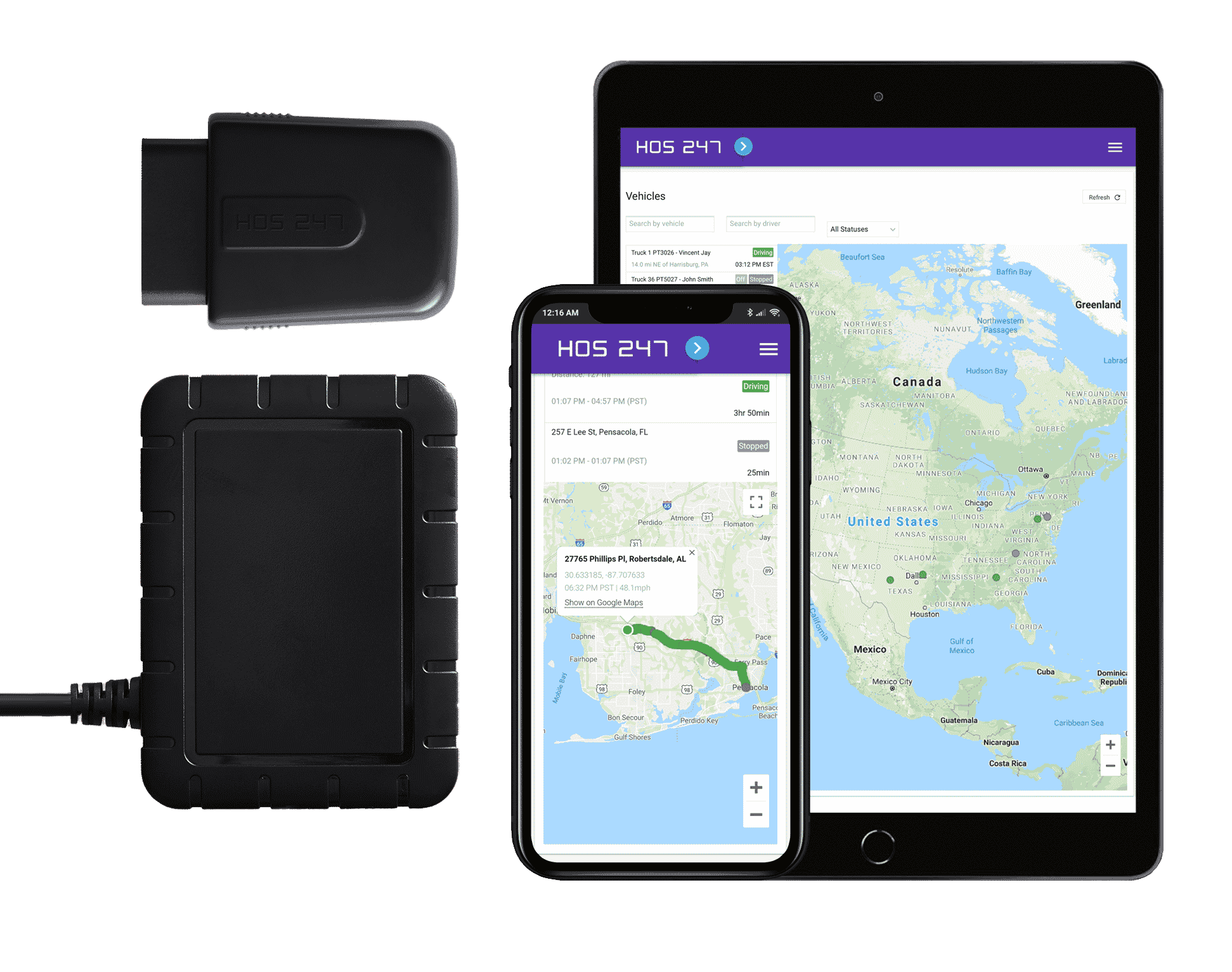Fleet tracking devices have become essential tools for modern trucking operations, transforming how businesses manage their vehicles, drivers, and overall efficiency. These sophisticated systems provide real-time visibility into fleet operations while helping companies reduce costs, improve safety, and maintain regulatory compliance. With the increasing complexity of transportation regulations and rising operational expenses, choosing the right fleet tracking solution has never been more critical for trucking businesses of all sizes.
The market offers numerous fleet tracking options, each promising to deliver value and improve operations. However, not all solutions are created equal, especially when it comes to meeting the specific needs of truckers who require reliable, user-friendly systems backed by exceptional support. Understanding the key features, installation methods, and integration capabilities of different tracking devices helps fleet managers make informed decisions that will benefit their operations for years to come.
Do you have any questions? Talk to ELD Advisor: 650-405-3372 or Request Callback
Benefits of HOS247 4G GPS Fleet Tracking System
The data collected by fleet tracking devices can be used to optimize processes, reduce costs and increase driver safety, improving the business’s bottom line. That said, there’s no doubt that using a fleet vehicle tracking device is a worthwhile investment, but choosing the right one among so many options isn’t always easy. HOS247 is a top-rated provider offering dependable fleet management solutions for the trucking industry. Let us tell you more about our GPS trackers.
By investing in GPS fleet tracking hardware from a reliable provider like HOS247, fleet managers can benefit from years of experience in the industry, 4G technology, second-to-none multilingual customer service, and so much more. Some benefits of HOS247 fleet tracking devices include:
- Reduced fuel costs. Fuel is a necessary but manageable expense. However, managing it requires having the necessary data to identify areas of improvement. For example, if your drivers are idling and they don’t have GPS tracking devices for fleets installed, you can’t know that is the reason for fuel wastage and correct the behavior. However, with fleet tracking devices, you can monitor idling, set reminders for preventative maintenance and plan better routes to reduce fuel consumption.
- Increased safety. Fleet tracking is intended to reduce the chance of losing valuable equipment, but it offers other important benefits like driver safety. When a vehicle is involved in an accident, a fleet manager can receive a notification that the car has been damaged or is no longer in motion, which can alert them and prompt them to offer help to the driver and, if needed, point first responders to the exact location. Alerts can also inform the driver and fleet manager when a vehicle is driven to unauthorized locations. Also, the maintenance features help keep trucks performing properly to reduce the risk of malfunction on the road.
- Easy installation. There’s no reason for fleet managers and drivers to have to wait for in-person installation or maintenance with HOS247 fleet tracking devices. Instead, the hardware installs in minutes, and if any questions arise, customer service is available to help every day of the week in English, Spanish, Polish, and Russian. Once the GPS fleet tracking technology is installed, all the fleet manager has to do is log in to the program from their computer to access live coordinates and vehicle diagnostics.
- Better, more transparent customer service. With fleet tracking devices, fleet managers don’t have to guess where deliveries are at any given moment when a customer calls with questions. Instead, they can log into the GPS fleet tracking software for a birds-eye view of where any vehicle is at a given time so they can give an accurate estimated time of arrival. Additionally, dispatchers can use fleet tracking software to assign a load to the closest driver, saving money on fuel and making dispatch more efficient. Additionally, a history feature allows fleet managers to see exactly where their vehicles have been and how long it took to get there at any given time to protect them from false claims.
By combining reliable technology with practical features that address real-world challenges, HOS247 helps fleet managers transform their operations while maintaining the simplicity and support that busy truckers need.

Types of Fleet Tracking Devices for Truckers
Fleet managers have several options when selecting tracking devices, each offering distinct advantages depending on their specific operational needs and vehicle types:
Plug-and-Play OBD Devices
These represent the most popular choice for many trucking operations due to their simplicity and quick installation. These devices connect directly to the vehicle’s OBD-II diagnostic port, typically located under the dashboard. Installation takes just minutes without requiring professional assistance or vehicle modifications. OBD devices automatically power on and off with the vehicle, eliminating battery concerns while providing comprehensive data including engine diagnostics, fuel consumption, and location tracking.
Hardwired Solutions
Hardwired devices provide enhanced security and tamper resistance, making them ideal for high-value vehicles or operations concerned about device theft. These systems require professional installation and are permanently integrated into the vehicle’s electrical system. Hardwired devices often include backup battery power, ensuring continued tracking even when the main vehicle power is disconnected. While installation is more complex, these devices typically offer more robust features and longer operational life.
ELD-Integrated Tracking Systems
This combined approach offers hours of service compliance with fleet tracking capabilities in a single solution. These devices automatically record driving time, manage duty status changes, and provide fleet managers with both compliance data and operational insights. This integration eliminates the need for separate systems while ensuring drivers stay compliant with FMCSA regulations.
Portable GPS Trackers
This type of trackers serve specialized purposes, particularly for equipment monitoring or personal use scenarios. These battery-powered devices can be moved between vehicles or used to track trailers, generators, and other valuable assets. While they require periodic charging, portable trackers offer flexibility for operations that need temporary or multi-purpose tracking solutions.
The choice between these options depends on factors including fleet size, vehicle types, security requirements, and budget considerations. Many successful operations use a combination of device types to address different aspects of their tracking needs.

Key Features to Look for in Fleet Tracking Technology
When evaluating fleet tracking devices, several essential features determine the system’s effectiveness and long-term value for trucking operations, including:
- Real-time tracking capability forms the foundation of any effective fleet management system. The best devices update location information every few seconds, providing fleet managers with accurate, current vehicle positions. This real-time data enables quick responses to customer inquiries, efficient dispatch decisions, and immediate assistance during emergencies or breakdowns.
- Driver behavior monitoring provides insights into driving habits that affect safety, fuel efficiency, and vehicle maintenance costs. Quality systems track metrics such as harsh acceleration, hard braking, excessive speeding, and extended idling. This data helps fleet managers identify training opportunities and recognize safe drivers while addressing risky behaviors before they lead to accidents or violations.
- Mobile app integration ensures that both drivers and managers can access critical information from smartphones or tablets. Driver-friendly apps simplify duty status changes, provide HOS countdown timers, and offer turn-by-turn navigation. Manager apps enable remote fleet monitoring, alert management, and quick access to vehicle and driver information from anywhere.
- Data security and privacy features protect sensitive business and driver information from unauthorized access. Look for systems that use encrypted data transmission, secure cloud storage, and role-based access controls. These features ensure that fleet data remains confidential while allowing appropriate personnel access to the information they need.
- Connectivity options determine how reliably the system will function across different operating environments. The best devices use 4G LTE networks for fast, reliable communication, with some offering backup connectivity options for remote areas. Battery backup capabilities ensure continued operation during vehicle maintenance or power issues.
- User interface and ease of use significantly impact how effectively your team will adopt and utilize the tracking system. Intuitive dashboards, clear reporting formats, and simple navigation reduce training time while improving overall system utilization and satisfaction.
When evaluating GPS fleet management systems, prioritize solutions that offer comprehensive features beyond basic tracking. The right combination of real-time monitoring, driver behavior analysis, and seamless integration capabilities will provide the foundation for improved safety, reduced costs, and enhanced operational efficiency. Remember that the most feature-rich system isn’t always the best choice — focus on selecting technology that aligns with your specific fleet management goals and delivers measurable results for your trucking operation.
Integration Capabilities: Making Your Fleet Tracking System Work with Other Tools
Modern trucking operations benefit significantly when their fleet tracking system integrates seamlessly with other business tools and software platforms.
ELD integration benefits extend far beyond basic compliance, creating a comprehensive view of fleet operations. When tracking devices integrate with electronic logging systems, fleet managers gain access to combined data that reveals relationships between driving patterns, fuel efficiency, and Hours of Service utilization. This integration eliminates duplicate data entry while providing richer insights into driver performance and operational efficiency.
Maintenance software integration transforms reactive maintenance into proactive fleet management. Connected systems automatically generate maintenance alerts based on mileage, engine hours, or diagnostic trouble codes detected by tracking devices. This integration helps prevent costly breakdowns, extends vehicle life, and ensures compliance with safety regulations by maintaining proper service records.
Fuel card integration provides comprehensive fuel management capabilities by combining location data with fuel purchase information. Fleet managers can verify that fuel purchases occurred at legitimate locations during authorized times while identifying opportunities for bulk fuel savings or preferred vendor programs. This integration also helps detect fuel theft or unauthorized purchases.
Transportation Management System (TMS) connectivity streamlines dispatch operations by automatically updating load status, delivery confirmations, and estimated arrival times. Integrated systems reduce administrative overhead while improving customer communication and enabling more efficient load planning and driver assignments.
Dispatch software compatibility enables real-time communication between dispatchers and drivers while providing accurate location information for load assignments. Quality integrations support two-way messaging, automatic status updates, and optimized routing suggestions that improve operational efficiency and customer satisfaction.
Benefits of a unified fleet management ecosystem become apparent when all systems work together seamlessly. Integrated platforms eliminate data silos, reduce manual data entry errors, and provide comprehensive dashboards that give fleet managers complete visibility into their operations. This unified approach leads to better decision-making, improved efficiency, and reduced administrative costs while ensuring that all aspects of the business work together toward common goals.
The most successful trucking operations choose fleet tracking systems that can grow with their business and integrate with both current tools and future technology investments.

HOS247 Is a Top-Rated Truck Fleet Management Provider
HOS247 combines fleet tracking, dispatching, scheduling and more into an all-in-one fleet management solution. Its benefits are unparalleled, with fleets benefiting from the following:
- Two-week trial with hassle-free returns and no contracts.
- A solid reputation for reliability.
- Top-rated customer support.
- A multilingual team that speaks English, Spanish, Polish and Russian.
- Flexible plans that can be paid monthly or yearly and scaled to fit the business’s needs.
- Driver-centric app interface.
- Reliable hardware that can be installed in minutes.
- Stable Bluetooth connection for accurate data.
- Streamlined compliance with the ELD Mandate.
Apart from GPS fleet tracking devices, HOS247 offers other features to improve trucking operations and increase profitability, including:
- ELDs. Electronic logbooks are required for most commercial motor vehicles. They’re mandated by the Department of Transportation and the Federal Motor Carrier Safety Administration (FMCSA) with the purpose of automatically recording hours of service.
- IFTA mileage reporting. With automatic IFTA mileage reporting, managers save time and can report taxes more efficiently. The result is a reduced risk of human error, which directly lowers audit risks as well.
- Vehicle diagnostics. The fault code detection feature alerts the driver and the fleet manager if the device that is connected to the engine identifies an issue that can interfere with the truck’s functioning. This way, drivers are safer and mechanical problems can be tended to in a timely manner.
- Idle reporting. When your vehicles are idling, it adds wear and tear to the vehicle and wastes valuable gas money. HOS247’s idle reporting feature alerts fleet managers as to when drivers are idling so they can coach them in real time and prevent it from happening again to reduce fuel wastage and increase vehicle lifespan.
HOS247 delivers more than just fleet tracking — we provide a complete business solution that grows with your operation. Our integrated approach eliminates the need for multiple vendors while ensuring that every aspect of your fleet management works seamlessly together.
Who Must Comply with the ELD Mandate?
Drivers who are required to maintain records of duty status must comply with the ELD mandate, per the FMCSA. This includes drivers domiciled across North America, including Mexico and Canada. There are exemptions to the ELD Mandate, however. Drivers who do not have to comply with the ELD Mandate include those who:
- Use time cards because they operate under the short-haul exception.
- Use the manual method of maintaining paper RODS for eight days or fewer over 30 consecutive days.
- Conduct drive-away tow-away operations.
- Drive CMVs with engines manufactured before the year 2000.
How Can ELDs Help Your Business?
Apart from compliance considerations, there are other reasons for fleets to adopt electronic logbooks. ELDs keep drivers safe on the road by reminding them when to take necessary breaks. They also provide the following benefits for trucking businesses:
- Access to important data in real time, which helps improve productivity and boost efficiency.
- Lower insurance premiums.
- Better Compliance, Safety and Accountability (CSA) scores as a result of improved driver safety, which also improves the chances of getting more business opportunities.
- Increased compliance with HOS rules, reducing drive fatigue.
- Driver vehicle inspection report features.
By investing in an ELD with fleet-tracking as one of its features, fleets can ensure they’re compliant with the ELD Mandate while also improving efficiency, productivity, driver retention, and safety — which directly impacts future revenue.

Conclusion
Fleet tracking devices represent a fundamental investment in the future success of any trucking operation. The technology delivers measurable benefits including reduced fuel costs, improved safety records, enhanced customer service, and streamlined regulatory compliance. However, realizing these benefits depends on choosing the right system and partner for your specific operational needs.
HOS247 stands out in the crowded fleet tracking market by combining reliable hardware, user-friendly software, and exceptional customer support into a comprehensive solution designed specifically for truckers. Our 4G GPS tracking system, ELD integration, and multilingual support team ensure that your fleet stays connected, compliant, and profitable regardless of where your operations take you.
The two-week risk-free trial, flexible pricing options, and no-contract commitment demonstrate our confidence in the value we provide while giving you the opportunity to experience the HOS247 difference firsthand. Whether you operate a single truck or manage a large fleet, our scalable solutions grow with your business while maintaining the reliability and support that keeps your operations running smoothly.
Don’t let outdated tracking methods or unreliable systems hold back your trucking business. Contact HOS247 today to learn how our fleet tracking devices and comprehensive support can help you optimize operations, reduce costs, and improve safety while maintaining full regulatory compliance. Your drivers, customers, and bottom line will benefit from making the switch to a proven fleet management solution designed by truckers, for truckers.

I’ve co-founded, built and managed several transportation-related businesses. Now, I’m a founder and CEO of HOS247 – an AI Transportation Platform for trucking companies, freight brokers and other logistics operations. We are transitioning old-style operations to technology-advanced logistics entities and help them to grow their businesses. ELDs (electronic logging devices), fleet tracking and management 2.0 combined with AI-powered dispatch tools.












As the trucking industry advances, the adoption of electronic logging devices (ELDs) is reshaping how commercial motor vehicle (CMV) drivers maintain their records of duty status (RODS). This article sheds light on key differences between paper and electronic CMV logbooks,

The Department of Transportation is responsible for federal transportation policy, which the FMCSA enforces. The ELD federal mandate is especially important, since it has made a big difference in the way authorities monitor hours of service compliance. The purpose of

GPS fleet tracking for small businesses is one of the most cost-effective and useful tools found in the trucking sector. Smaller-scale businesses can perform very well because of their capacity for lean management. Using technology to optimize processes and effectively